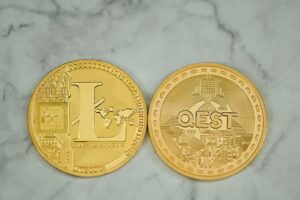Understanding Halal Forex: A Beginner’s Guide
Introduction:
Forex trading, also known as foreign exchange trading, is a global decentralized market where currencies are traded. It is one of the largest and most liquid financial markets in the world. However, for Muslim traders, engaging in forex trading can raise questions about its compliance with Islamic principles. In this beginner’s guide, we will explore the concept of Halal forex and how Muslim traders can participate in the forex market while adhering to their religious beliefs.
What is Halal Forex?
Halal forex refers to forex trading that is conducted in accordance with Islamic principles. In Islam, engaging in any form of business or investment should be carried out in a manner that is ethical and in line with Shariah law. This means that certain activities, such as charging or paying interest (Riba), engaging in excessive speculation (Gharar), or investing in prohibited industries (Haram), are not permissible.
To make forex trading halal, several key considerations need to be taken into account:
1. No Riba (Interest):
One of the fundamental principles of Islamic finance is the prohibition of Riba, which refers to the charging or paying of interest. In forex trading, this poses a challenge as most forex transactions involve the borrowing or lending of currencies, which can be seen as a form of interest. To overcome this issue, Islamic forex accounts were introduced, where no interest is charged or paid on overnight positions. Instead, Islamic forex accounts operate on the basis of profit-sharing or commission-based models.
2. No Gharar (Excessive Speculation):
Gharar refers to excessive uncertainty or ambiguity in a transaction, which can lead to unfairness or exploitation. In forex trading, excessive speculation can be seen as a form of Gharar. To avoid this, Muslim traders are encouraged to engage in spot forex trading, where the exchange of currencies occurs immediately, without any delay or uncertainty. Islamic forex accounts typically offer spot forex trading, ensuring compliance with the principle of Gharar.
3. No Haram Activities:
Muslim traders should also ensure that they are not investing in prohibited industries or engaging in unethical practices. This includes industries such as alcohol, gambling, pork, or any other activities that are considered Haram (forbidden) in Islam. By avoiding such investments, Muslim traders can ensure that their forex trading activities are in line with their religious beliefs.
How to Participate in Halal Forex Trading:
To participate in halal forex trading, Muslim traders can follow these steps:
1. Choose a Reliable Islamic Forex Broker:
Start by selecting a reputable forex broker that offers Islamic forex accounts. These accounts are specifically designed to cater to the needs of Muslim traders while adhering to Shariah principles. Islamic forex accounts operate on a profit-sharing or commission-based model, ensuring compliance with Riba regulations.
2. Understand the Terms and Conditions:
Before opening an Islamic forex account, carefully read and understand the terms and conditions provided by the broker. Pay attention to the profit-sharing or commission structure, as well as any additional fees or charges associated with the account.
3. Avoid Overnight Positions:
To comply with the prohibition of Riba, Muslim traders should avoid holding overnight positions, as this can lead to interest charges. Islamic forex accounts typically operate on a daily basis, where any open positions are closed before the end of the trading day to avoid interest charges.
4. Trade in Compliance with Shariah Principles:
Ensure that your trading activities are in line with Islamic principles by avoiding excessive speculation and prohibited industries. Engage in spot forex trading, where transactions occur immediately, without any delay or uncertainty. This will help to minimize the risks associated with Gharar and ensure compliance with Islamic principles.
Conclusion:
Halal forex trading provides Muslim traders with the opportunity to participate in the global forex market while adhering to their religious beliefs. By choosing a reliable Islamic forex broker, understanding the terms and conditions, avoiding overnight positions, and trading in compliance with Shariah principles, Muslim traders can actively engage in forex trading without compromising their faith. It is important for beginners to educate themselves about the specific requirements of halal forex trading to ensure a seamless and compliant trading experience.





